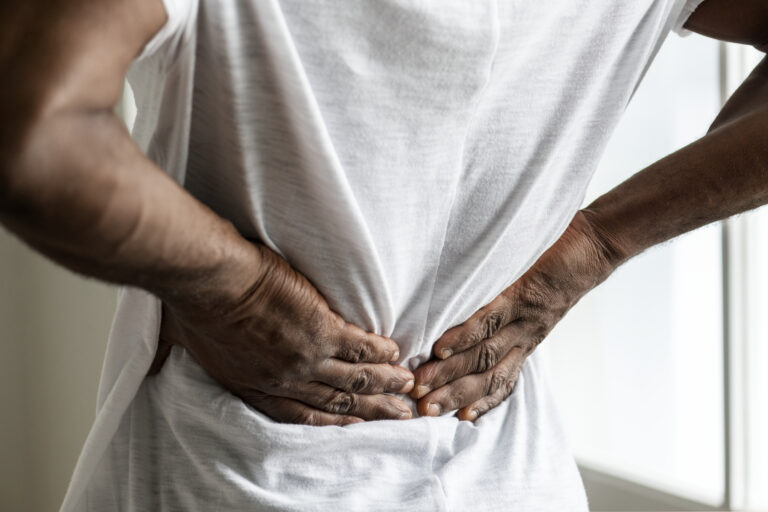Prostatitis and Prostate Cancer Treatment in Miami, FL
What is Prostatitis or Prostate Cancer?
Prostatitis is an inflammation of the prostate gland, a small gland located below the bladder in men, responsible for producing seminal fluid. Prostatitis can be acute or chronic, and it is often painful and disruptive to daily life.
Prostate cancer, on the other hand, is a form of cancer that occurs in the prostate gland. It is one of the most common types of cancer in men. While some types of prostate cancer grow slowly and may need minimal or no treatment, others are aggressive and can spread quickly. As a dedicated specialist in pelvic health, I provide comprehensive care for conditions like prostatitis and prostate cancer. Stack the deck in favor of your best possible outcome with your prostatitis and prostate cancer treatment in Miami, FL.

What are the Symptoms of Prostatitis and Prostate Cancer?
Symptoms of Prostatitis can include:
Pain and Discomfort:
Commonly experienced in the groin, pelvic area, or genitals.
Urinary Issues:
Frequent urination, urgent need to urinate, difficulty urinating, or painful urination.
Sexual Dysfunction:
Painful ejaculation or erectile dysfunction.
Systemic Symptoms:
Fever, chills, and flu-like symptoms, particularly with acute prostatitis.
Symptoms of Prostate Cancer may include:
Urinary Symptoms:
Difficulty starting and stopping urine flow, decreased force in the stream of urine.
Blood in Urine or Semen:
A notable but less common symptom.
Discomfort:
Pain in the lower back, hips, or thighs.
Erectile Dysfunction:
Difficulty achieving or maintaining an erection.
Advanced Symptoms:
Bone pain and swelling in the legs or pelvic area. As a pelvic physical therapist, my role in managing prostatitis and supporting prostate cancer treatment focuses on alleviating symptoms and improving quality of life.
If you are experiencing any of these symptoms, don’t hesitate to reach out for a consultation. Get in touch with me for safe prostatitis and prostate cancer treatment in Miami, FL.
What are the Causes of Prostatitis and Prostate Cancer?
Prostatitis:
Bacterial Infections:
Acute or chronic bacterial infections can lead to prostatitis.
Non-Bacterial Factors:
Injury, nerve damage in the lower urinary tract, or an autoimmune response can cause non-bacterial prostatitis.
Risk Factors:
Urinary tract infections, sexually transmitted infections, and certain medical procedures can increase the risk.
Prostate Cancer:
Genetic Factors:
A family history of prostate cancer can significantly increase the risk.
Age:
The risk of prostate cancer increases with age, particularly after 50.
Diet and Lifestyle:
High-fat diets and a lack of exercise may contribute to the development of prostate cancer.
Hormonal Influence:
Higher levels of certain hormones, such as testosterone, may promote the growth of prostate cancer cells.
What is the Treatment Plan for Prostatitis and Prostate Cancer?
Prostatitis:
Medication:
Antibiotics for bacterial infections, alpha-blockers to help relax bladder neck muscles and muscle fibers where the prostate joins the bladder, and anti-inflammatory medications to reduce pain and inflammation.
Physical Therapy:
Pelvic physical therapy can help alleviate pain and discomfort through targeted exercises and techniques to strengthen pelvic muscles and improve function.
Lifestyle Changes:
Drinking plenty of fluids, avoiding alcohol, caffeine, and spicy foods, and practicing good hygiene can help manage symptoms.
Alternative Therapies:
Acupuncture, biofeedback, and relaxation techniques may also be beneficial.
Prostate Cancer:
Pelvic Physical Therapy:
To help regain the common side effects of incontinence and erectile dysfunction. Ideally, seeing me prior to your surgery or procedure for your best outcome.
Active Surveillance:
For slow-growing prostate cancer, monitoring the cancer carefully without immediate treatment can be an option.
Surgery:
Radical prostatectomy involves the removal of the prostate gland and some surrounding tissue.
Radiation Therapy:
External beam radiation or brachytherapy (internal radiation) to kill cancer cells.
Hormone Therapy:
Reducing the level of testosterone to slow the growth of cancer.
Targeted Therapy:
Drugs that specifically target cancer cells without affecting normal cells.
Your well-being is my top priority. Whether you are dealing with prostatitis or prostate cancer treatment, I am here to support you with a tailored prostatitis and prostate cancer treatment in Miami, FL. Feel free to reach out to schedule a consultation or to learn more about how pelvic physical therapy can benefit you.
